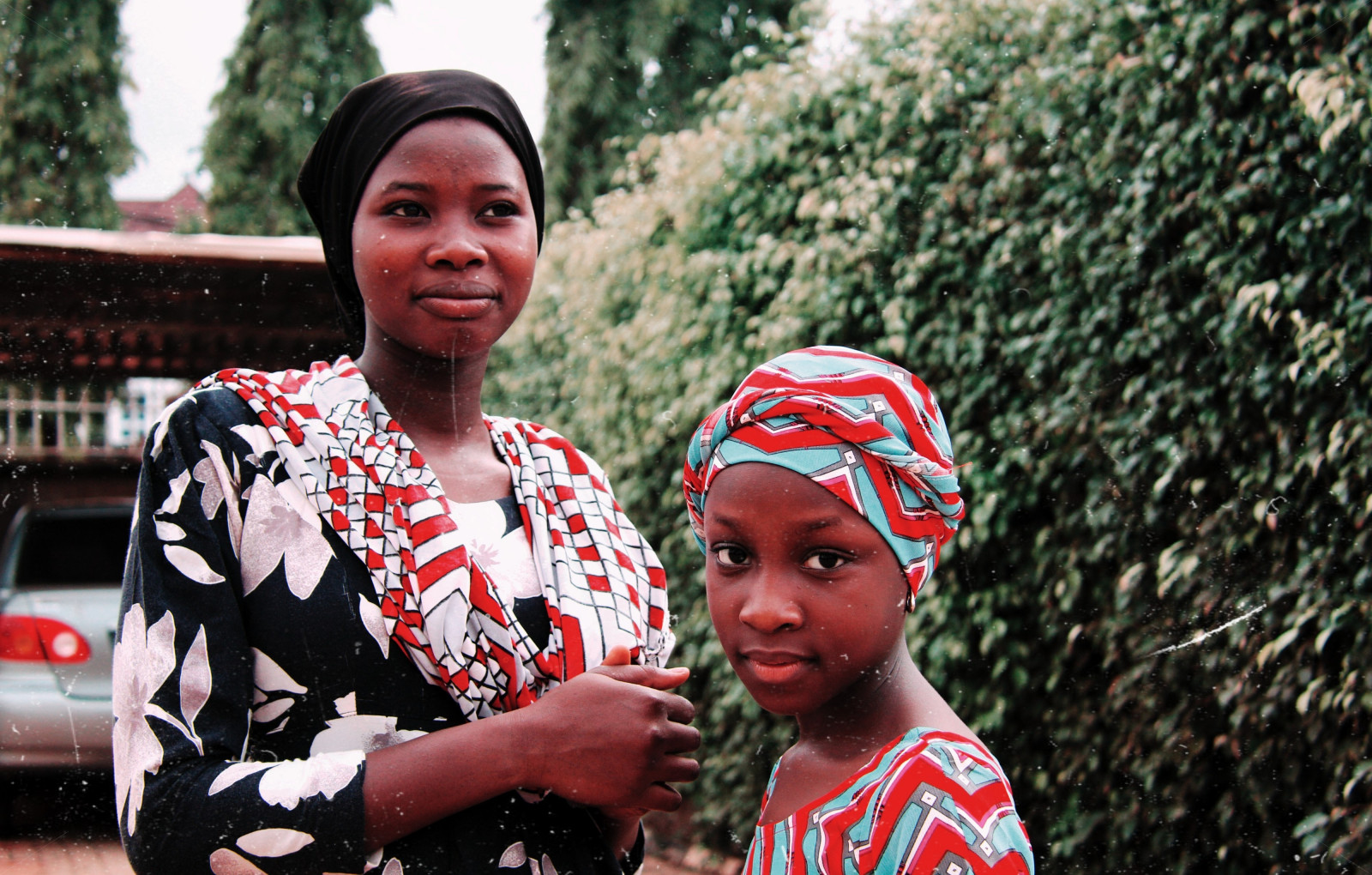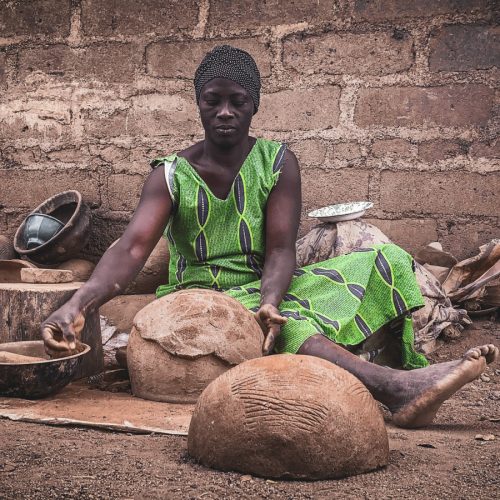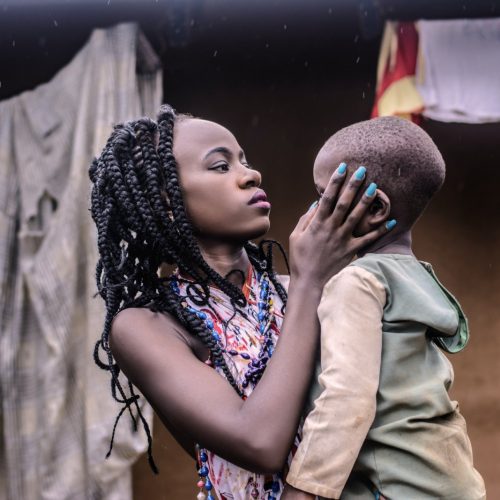“God, hear our Prayers: Gender, Islam, and Human Rights in Genital Cutting Debates in Guinea-Bissau and Portugal“
As seen by Blanca Sell Fernández…
On May 12th 2021, we had the opportunity of having Dr. Michelle C. Johnson, Professor of Anthropology from Bucknell University, joining us for the fourth webinar of the Sexual and Reproductive Rights in West Africa series, hosted at CEI-Iscte and financed by FCT (PTDC/SOC-ANT/31675/2017).
During her talk, Dr. Johnson shared with us her thoughts on her work regarding male and female initiation rituals and practices among the Mandinka peoples in Guinea-Bissau and among the Guinean Muslim community in Lisbon, Portugal.
Building on the multi-sited transnational fieldwork she’s gathered for over more than two decades, Michelle Johnson focused on the complexities of the ongoing debate concerning genital cutting practices, Islam and human rights. As she attempted to shift the attention from women’s bodies to a broader understanding of gender and of spiritual well-being, our speaker stressed how male initiation practices (including male circumcision) were not being taken seriously and were actually being overlooked. As they remain understudied until this day, and are mainly perceived as unproblematic in the majority of mainstream discourses regarding genital mutilation and initiation practices.
Based on her recently published book, entitled “Remaking Islam in African Portugal: Lisbon – Mecca – Bissau”, Dr. Michelle Johnson explored the many transformations that have been taking place over the past decades with regards to male and female traditional initiation rituals both in the Mandinka villages in Guinea-Bissau as in the Guinean Muslim diaspora present in Portugal. As she pointed out, male circumcision is being increasingly medicalized, while, on the other hand, female genital cutting has gone into hiding and is still being practiced in a clandestine manner.
As she reflected on her previous findings, Michelle Johnson highlighted some of the conversations she’s had over the years with her informants, both male and female interlocutors living in Guinea-Bissau and in Lisbon, whose views regarding female genital mutilation notably differed from one another. While certain men seemed to be more open to the idea of abandoning the practice, according to our speaker, the women she interviewed believed it would strongly interfere with their ability of being perceived as good Muslims, wives and daughters. Nevertheless, as Dr. Johnson pointed out, the same men who seemed to be willing to abandon the practice, confessed they wouldn’t agree to their sons marrying a woman who wasn’t circumcised.
According to Michelle Johnson, these existing divisions and contradictions have only intensified in Lisbon. Based on her research, Guinean Muslim women find themselves both conflicted and concerned, fighting for their daughters’ Muslim identities and marriageability, while they consider whether or not to carry on with the practice “of the grandmothers of their grandmothers”. Likewise, when asked about the possibility of FGM/C being performed by foreign medical physicians (like in the case of male circumcision), most women agree that it would completely alter its meaning and would prefer for it to be carried out by traditional circumcisers both in Portugal as in Guinea-Bissau.
In addition, our speaker also brought up the heated and controversial debate surrounding the rise of genital cosmetic surgery in the global North, as she drew attention to how these practices are being increasingly accepted and normalized, while FGM/C is condemned and persecuted on a global scale.
Towards the end of Johnson’s presentation, during the Q&A, a vivid scholarly debate took place in which different thinking points were exchanged, contributing to our greater understanding of the complexities that persist while addressing these matters.
As seen by Isaiete Jabulá …
On the 12th of May, to close off the first part of the webinar series within the SEXRWA project, we had Michelle Johnson, Professor of Anthropology at Bucknell University, as our guest.
In her presentation, Michelle Johnson explored the debate regarding female genital mutilation rituals, sexuality and human rights among the Mandinka who reside in Guinea-Bissau and in Portugal. As she recalls, in Guinea-Bissau, as in many other African societies, Mandinka female initiation rituals do not forcefully mark the beginning of adulthood anymore, nor are they exclusively linked to the construction of gender, as they are now mostly seen as an issue of ethnicity and of religious identity.
According to Dr. Johnson, through female genital mutilation rituals, girls get closely acquainted with social norms and are taught how to behave in regards to their age and their social status. Through ritual songs and dances, they gain insight into the world and learn about the meaning of various signs and gestures that they will encounter throughout their lives. For the Mandinka, excised women are socially refined, perceptive and emotionally intelligent. They are able to sense emotions and to anticipate the needs of others before they are even expressed, unlike non-excised women, who, on the contrary, are described as being disrespectful, simple-minded, indifferent and stubborn.
In addition, female excision also fulfils the role of normalizing or/and controlling female sexual desire. Since women are often considered to be more sexually impulsive than men, it is believed that this way, when husbands are busy with their other wives, women will not resort to lovers. Also, FGC is considered to purify women and to make them suitable for praying, given that, according to the Mandinka women, the odor of uncircumcised female genitals makes them impure and unfit to do so.
Although they are well aware of the pain and of the suffering that they’ve experienced during the excision ritual, many women continue to support the practice and describe their experiences as being difficult but also transformative. They believe that only through suffering can one truly appreciate the sweetness of life. Suffering, as explained by Michelle Johnson, is not universal and should be understood as an ethnic category.
When asked about the abandonment of the practice, her interlocutors retorted: “how can we end a practice that our grandmothers and mothers did?”. In this sense, Michelle Johnson recommends a greater inclusion of women in the design and implementation of community awareness actions.
As Michelle Johnson recalled her own experience in 2003, in the region of Oio in Guinea-Bissau, she testified that with regards to raising awareness on women’s issues (including female circumcision), not only did the local women not participate in the organization and planning of these actions, but most of them did not understand the idiom or the universal human rights language used when referring to circumcision. Therefore, highlighting the need to approach local perspectives in the adequacy of transnational goals. In other words, according to Michelle Johnson, “if we want to fight for human rights in Africa and other parts of the global South, we need to take seriously what local people have to say about their own practices”, because human rights must be seen in a broad cultural context and must be expressed in ways that are relevant to local people.
Mandinka immigrants in Lisbon, especially those who have daughters who are born in Portugal, face difficult choices. Many of them struggle between sending their daughters to Guinea-Bissau to be excised or abandoning the practice and facing the consequences this may possibly entail for their daughters future. In addition, the Muslim immigrant diaspora also faces racial prejudice due to the rise of anti-Islam sentiment in the West. One of Michelle Johnson’s interlocutors states that, since the showing of a television series condemning the practice of female genital mutilation on a French channel, individuals have started to look at Muslim women as mutilated persons, refusing to sit next to them on public transport and to even touch their hands while they pay for their bus tickets.
Edited by Blanca Sell Fernández, Research Assistant.




